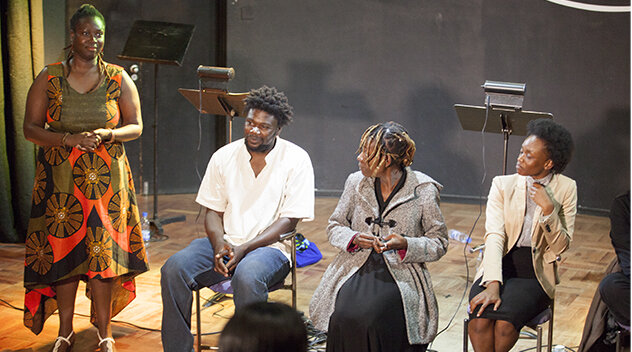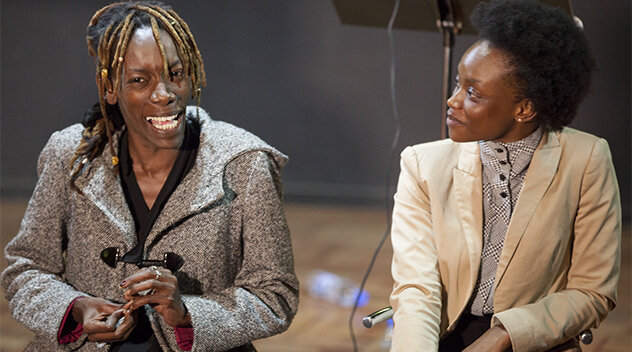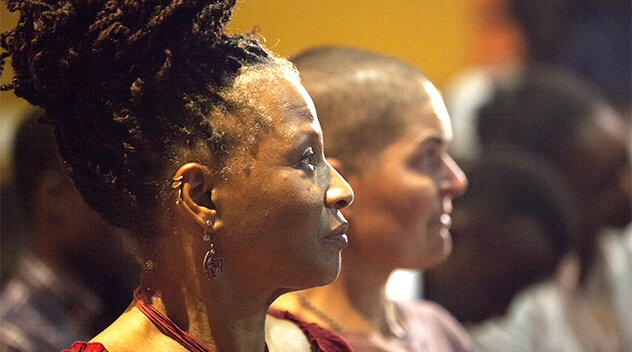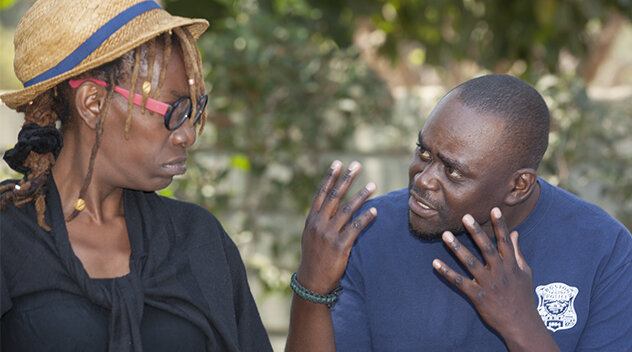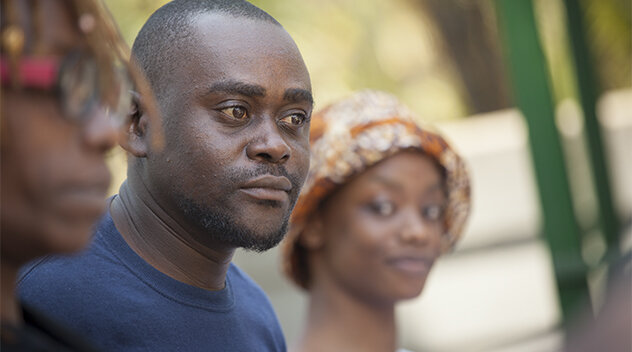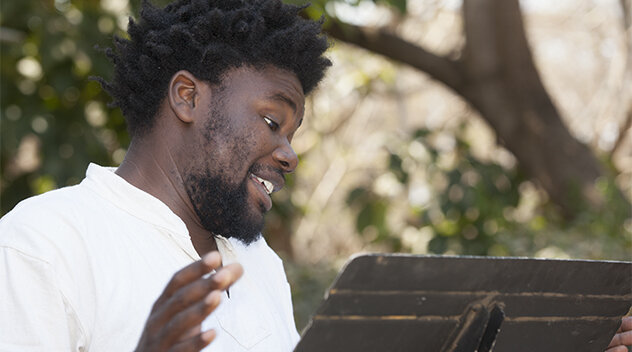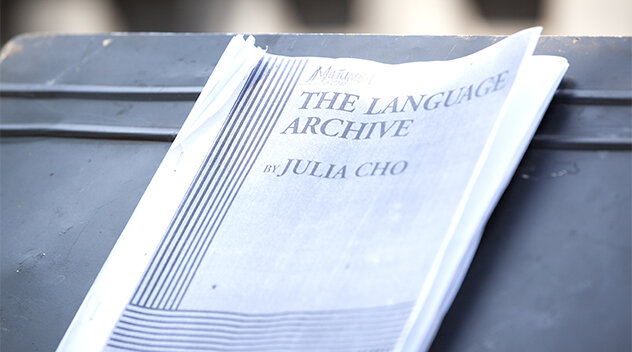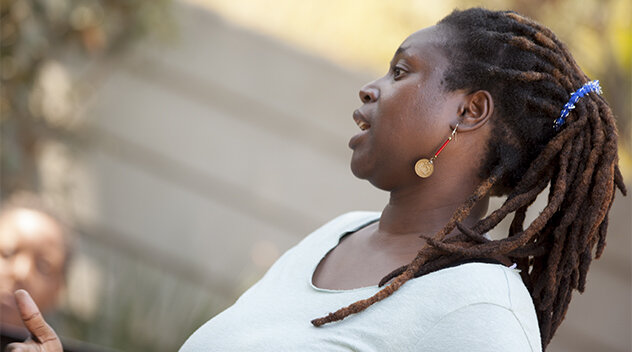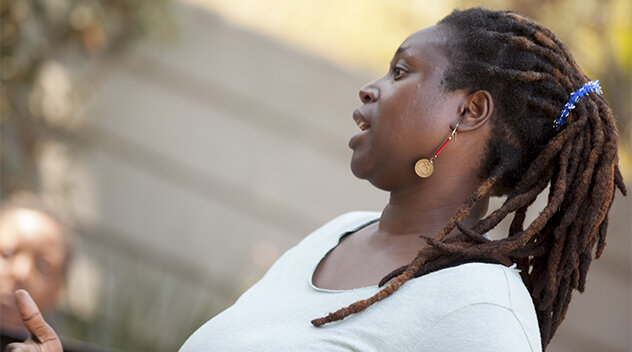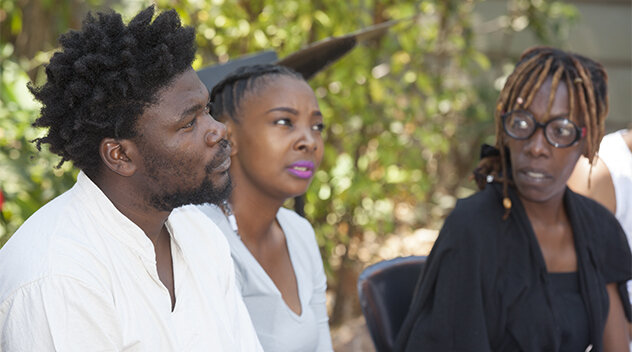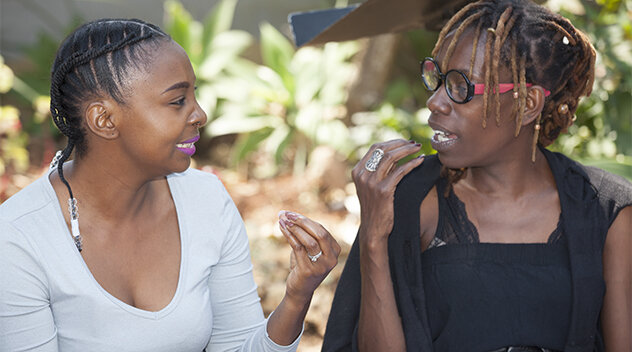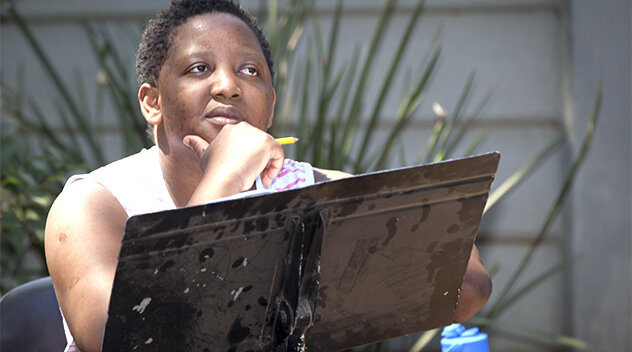Directing The Language Archive
Harare, September 15th 2018 | Elizabeth Zaza Muchemwa
It was fun to work on the staged reading of The Language Archive by Julia Cho. I selected the play because I was interested in many of the issues dealt with in the play.
Over the years I have developed a mild interest in languages. I have been picking up bits of different languages from reading books, watching movies and through my travels away from home. And yet I am also ashamed that whilst I know how to say I love you and thank you in more than three languages, I still cannot finish a conversation in my native tongue without peppering it with English. Every day I am cognizant of the fact that bits of my native tongue is fading away as their use is being taken over by popular colloquialism. And I am doing nothing about it. And there is a fear that one day, no one will still be speaking it. It was not just language in its linguistic and cultural sense that made me interested in The Language Archive. I was baffled by how it is possible to speak a language in conversation and still misunderstand each other because you would not be speaking the ‘same language.’ This in itself affected by different social orders, cultural and economic differences.
Relationships between people and the human need of wanting to be loved are what also what made the play an engaging read. My first read through of the play, without the actors, was done within an afternoon. And even when I read it over and over again in preparation for the staged reading rehearsals, I couldn’t figure out what issues I wanted to focus on.
But even as I struggled with this distillation process, I couldn’t wait to begin the rehearsals. Because whilst I hadn’t decided on what themes to focus on, I knew what I wanted to do with the play. I needed the staged reading to elicit a discussion with the audience that would be guided by a need to listen in order to understand instead of conquering.
And it is this conviction that had me begin the rehearsals with a zest and zeal that was equally matched with the spirited discussions that the actors got into. It was made even more awesome when I noticed how some actors who don’t normally speak much voicing their opinions in the rehearsals as well as in the post-performance discussion.
One of the lines that stayed with me throughout the process was from Act 1 Scene 8 where Alta, played by Charmaine Mujeri, says; “George. Maybe you not understanding something. You think the loss of our language is the loss of our world. And is okay you think that; you are a linguist; you think everything is about language. But it is the world that ends first, my friend. World die and then language follow. Our world is already gone. And what we accept, which maybe you do not, is: no amount of talk talk talk will ever bring what is gone back.’
Whilst it was great to go down the rabbit hole that is language; explore what it means to have a universal call for peace, love, and understanding in a world that is mired in conflict; trying to understand how language affects human interaction and condition- the best thing out of this staged reading experience was one discovery. The realization that if you put in the preparation, continue to hold on to the good things that you have learned along the way, keep working on finding your artistic voice and, developing your own directing language perhaps one day you may be entirely satisfied with the end product.

